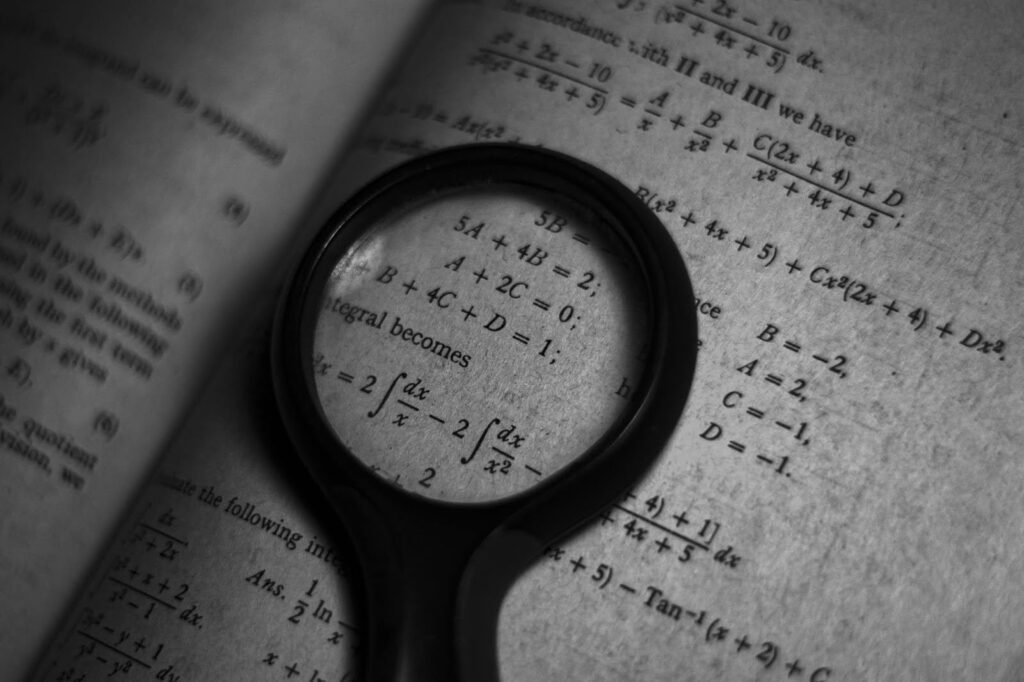
Unraveling the Mysteries of Mathematics
Mathematics is often described as the language of the universe. It is a powerful tool for understanding the fundamental principles that govern our world. From counting and measuring to exploring complex algorithms and equations, mathematics encompasses a vast and diverse array of concepts that permeate every aspect of our lives. In this comprehensive guide, we embark on a journey through the captivating realm of mathematics. Exploring its history, significance, and practical applications.
Understanding the Foundations of Mathematics
1. The Language of Numbers
At its core, mathematics is the study of numbers and their relationships. From the simplest arithmetic operations of addition and subtraction to the complexities of calculus and algebra, numbers serve as the building blocks of mathematical reasoning and analysis. Whether counting objects, measuring quantities, or solving equations, numbers provide a universal language for describing and understanding the world around us.
2. Exploring Mathematical Structures
Mathematics is not just about numbers; it also encompasses a wide range of abstract structures and concepts. These include geometric shapes, algebraic equations, functions, sets, and graphs, among others. By studying the properties and relationships of these structures, mathematicians uncover hidden patterns, symmetries, and regularities that underlie the natural world and the processes that govern it.
The Evolution of Mathematical Thought

1. Ancient Origins
The roots of mathematics can be traced back to ancient civilizations such as Mesopotamia, Egypt, Greece, and China. Early mathematicians of those civilizations laid the groundwork for many fundamental concepts and techniques. Ancient mathematicians made significant contributions to geometry, arithmetic, and algebra. It developed methods for solving practical problems and laying the foundation for future mathematical advancements.
2. The Golden Age of Mathematics
The Renaissance and the Enlightenment marked a period of remarkable progress and innovation in mathematics. During this time, mathematicians such as Euclid, Pythagoras, Newton, and Leibniz made groundbreaking discoveries in geometry, calculus, and mechanics, revolutionizing our understanding of the physical world and laying the groundwork for modern science and technology.
3. Modern Mathematics
The 20th and 21st centuries have witnessed unprecedented advancements in mathematics. Driven by the development of new theories, techniques, and computational tools. Fields such as abstract algebra, number theory, topology, and mathematical logic have expanded our understanding of mathematical structures and opened up new frontiers for exploration and discovery. Today, mathematics plays a crucial role in virtually every scientific and technological endeavor, from cryptography and computer science to physics and engineering.
The Practical Applications of Mathematics
1. Engineering and Technology
Mathematics is essential for solving practical problems in engineering and technology, providing the mathematical foundations for designing structures, optimizing systems, and analyzing data. Engineers use mathematical principles to model and simulate complex phenomena, design algorithms and software, and optimize the performance of mechanical, electrical, and aerospace systems.
2. Finance and Economics
Mathematics plays a critical role in finance and economics, where it is used to model financial markets, analyze risk, and optimize investment strategies. Mathematical tools such as calculus, probability theory, and differential equations are employed to develop models for pricing derivatives, forecasting market trends, and managing portfolios, helping individuals and organizations make informed financial decisions.
3. Science and Medicine
Mathematics is the language of science, providing the framework for formulating theories, conducting experiments, and analyzing data. In fields such as physics, chemistry, and biology, mathematical models and equations are used to describe natural phenomena, predict the behavior of complex systems, and test hypotheses. In medicine, math is applied to medical imaging, drug development, and epidemiology, helping researchers and clinicians understand disease processes and improve patient care.
4. Cryptography and Information Security
Math plays a crucial role in cryptography and information security, where it is used to develop encryption algorithms, digital signatures, and secure communication protocols. Mathematical concepts such as prime numbers, modular arithmetic, and elliptic curves form the basis for cryptographic techniques that protect sensitive data and ensure the confidentiality, integrity, and authenticity of information in digital systems.
Advantages of Mathematics: A Fundamental Tool for Success and Understanding

Mathematics, often hailed as the language of the universe, offers a plethora of advantages that extend far beyond the realm of numbers and equations. Whether applied in everyday life, academia, or professional fields, mathematics plays a pivotal role in shaping our understanding of the world and solving complex problems. Let’s delve into the myriad advantages of mathematics:
1. Enhancing Problem-Solving Skills
Mathematics nurtures analytical thinking and problem-solving abilities. Through the process of solving mathematical problems, individuals learn to dissect complex issues, identify patterns, and formulate systematic approaches to finding solutions. These problem-solving skills are transferable to various aspects of life, enabling individuals to tackle challenges with confidence and efficiency.
2. Fostering Logical Reasoning
Mathematics is inherently logical, requiring individuals to follow a sequence of steps to arrive at a conclusion. By engaging in mathematical reasoning, individuals develop the capacity to think critically, evaluate arguments, and draw logical conclusions. This logical reasoning extends beyond the realm of mathematics and is applicable to decision-making processes in diverse contexts.
3. Improving Quantitative Literacy
In an increasingly data-driven world, quantitative literacy is essential for making informed decisions and navigating everyday situations. Math equips individuals with the skills to interpret numerical information, evaluate statistical claims, and understand mathematical models. From budgeting finances to interpreting medical statistics, quantitative literacy empowers individuals to navigate the complexities of modern life.
4. Facilitating Technological Advancements
Mathematics is the backbone of modern technology and scientific advancements. From computer algorithms and artificial intelligence to cryptography and data analysis, mathematical concepts underpin virtually every aspect of technology. By advancing mathematical research and innovation, individuals contribute to the development of cutting-edge technologies that drive progress and improve lives.
5. Enabling Career Opportunities
Proficiency in mathematics opens doors to a wide range of career opportunities across various industries. Whether pursuing a career in science, engineering, finance, computer science, or education, mathematical skills are highly valued by employers. Individuals with a strong mathematical background are equipped to excel in roles that require problem-solving, critical thinking, and quantitative analysis.
6. Supporting Academic Achievement
Mathematics forms the foundation of many academic disciplines, including physics, chemistry, biology, and economics. A solid understanding of mathematical principles is essential for success in these fields, as well as in standardized tests such as the SAT, GRE, and GMAT. By mastering mathematics, students lay the groundwork for academic achievement and future career success.
7. Cultivating Creativity and Innovation
Contrary to popular belief, mathematics is not solely about rote memorization and calculation; it also fosters creativity and innovation. Mathematicians and scientists often employ creative thinking and imagination to develop novel solutions to complex problems. The beauty of mathematics lies in its ability to inspire curiosity, exploration, and discovery, leading to breakthroughs that push the boundaries of human knowledge.
8. Promoting Lifelong Learning
Mathematics is a lifelong pursuit that offers endless opportunities for learning and growth. Whether studying advanced mathematical concepts or exploring recreational mathematics for enjoyment, individuals can continue to expand their mathematical horizons throughout their lives. Lifelong learning in mathematics not only enriches personal development but also fosters a deeper appreciation for the beauty and elegance of the subject.
Conclusion
Mathematics is a universal language that transcends borders, cultures, and disciplines, providing a powerful framework for understanding the world around us and solving complex problems. From ancient civilizations to modern technological advancements, mathematics has played a central role in shaping human history and progress. By exploring the foundations, evolution, and practical applications of mathematics, we gain a deeper appreciation for its beauty, significance, and enduring relevance in our lives.













